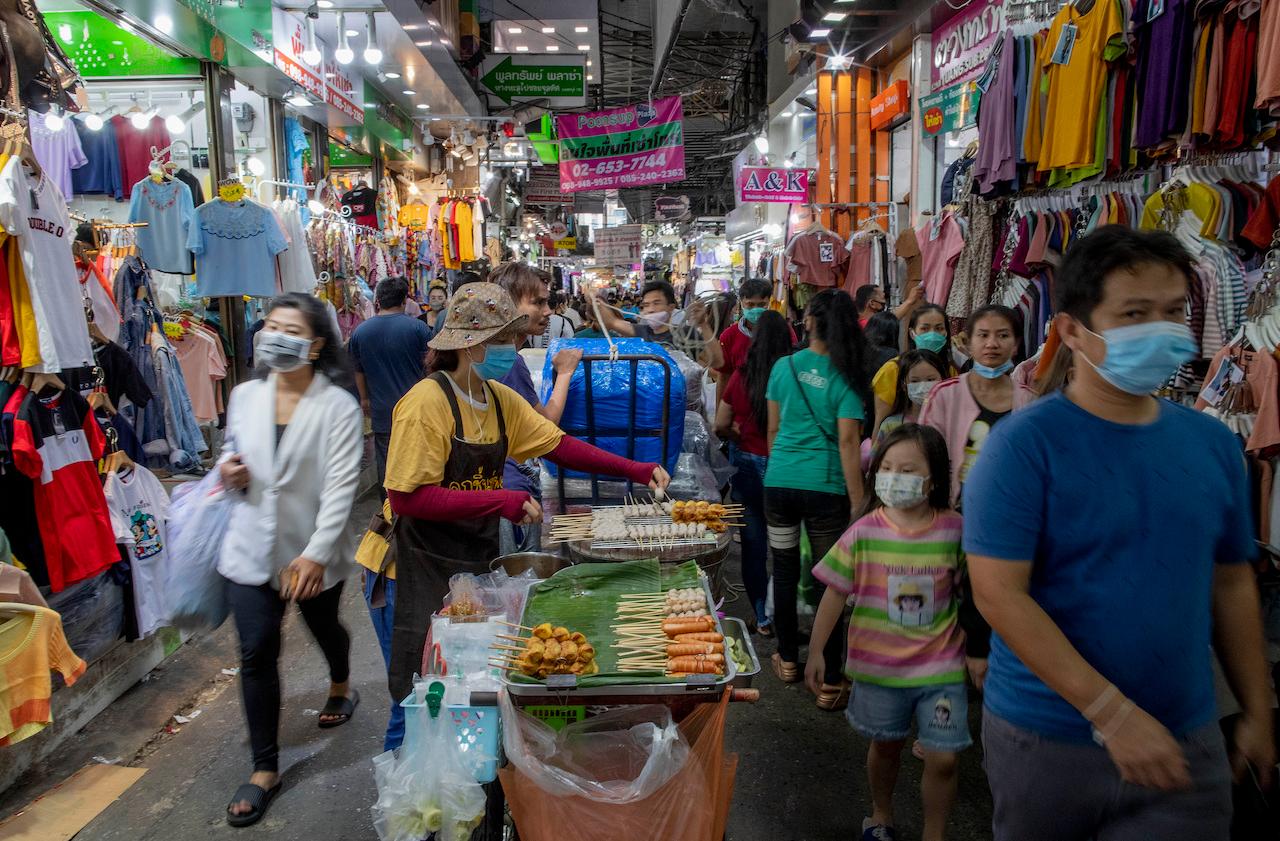Thai economy slumps, households struggle with record debt
Thailand has had a comparatively successful pandemic, but the economy cannot escape financial fallout.
Just In
The current level of household debt in Thailand is the highest since the central bank began keeping records in 2003, and families are finding it increasingly difficult to keep up with payments, Reuters reports.
Thai households are among the biggest borrowers in Asia, racking up a debt mountain of 14 trillion baht, or 89.3% of gross domestic product (GDP) by the end of December, a sharp rise from 78.1% in 2017.
High debt also poses a risk to financial stability and restrains consumer spending in Southeast Asia’s second-largest economy, impeding a recovery from the coronavirus crisis.
The economy suffered its deepest slump in over two decades last year as exports shrank and the vital tourism sector was devastated by the absence of foreign visitors.
New Covid-19 outbreaks have added to the pressure on some businesses and households, the central bank said last month, when it cut its 2021 GDP growth outlook to 3% from 3.2%, noting the economy would not return to pre-pandemic levels until mid-2022.
While the latest flareup in infections has been largely contained, it has reinforced fears that an economic rebound will be slow and patchy.
The government has promised one trillion baht in relief to ease the impact of the outbreak, but some say relief is not being rolled out fast enough for many Thais.
Last year, a woman took rat poison outside the finance ministry to protest the slow response. She survived and was promised her payment days later.
The growing debt burden is likely to curb private consumption, which accounts for half of Thailand’s US$502 billion GDP, and will hurt lenders’ earnings if more loans turn sour.
The pandemic slowed down loan demand last year, but the slumping economy also made it more difficult for people to repay their loans.
For years, easy credit for consumers and businesses has prompted many warnings about the dangers of rising household debt in Thailand, and now the pandemic has left millions of people out of work.
About 4.7 million workers are at risk of being affected by the outbreak, of which 1.2 million workers might become unemployed or underemployed, the central bank said in January.
Even after the economy has recovered and more jobs are available, the debt will take a long time to bring down.
“We may earn more but that will go to debt servicing, not much left to spend,” said Aree Onkloi, 22, a worker from the northern province of Phitsanulok, whose family owes nearly a million baht. “We will have to keep borrowing and never get out of it.”
Growing pressure is on the Thai government, which is already grappling with mounting pro-democracy demonstrations and struggling to revive the pandemic-hit economy.
Subscribe to our newsletter
To be updated with all the latest news and analyses daily.
